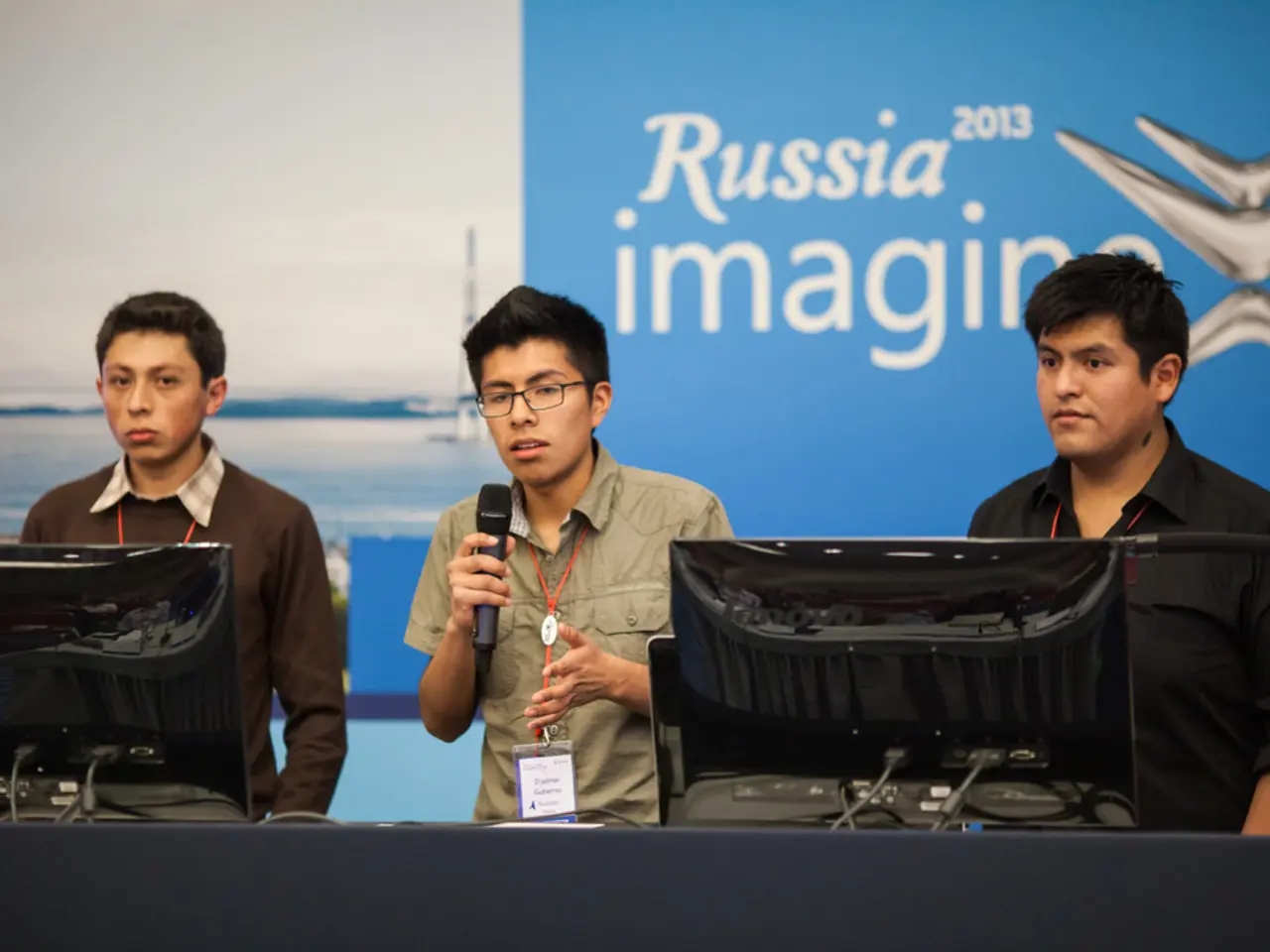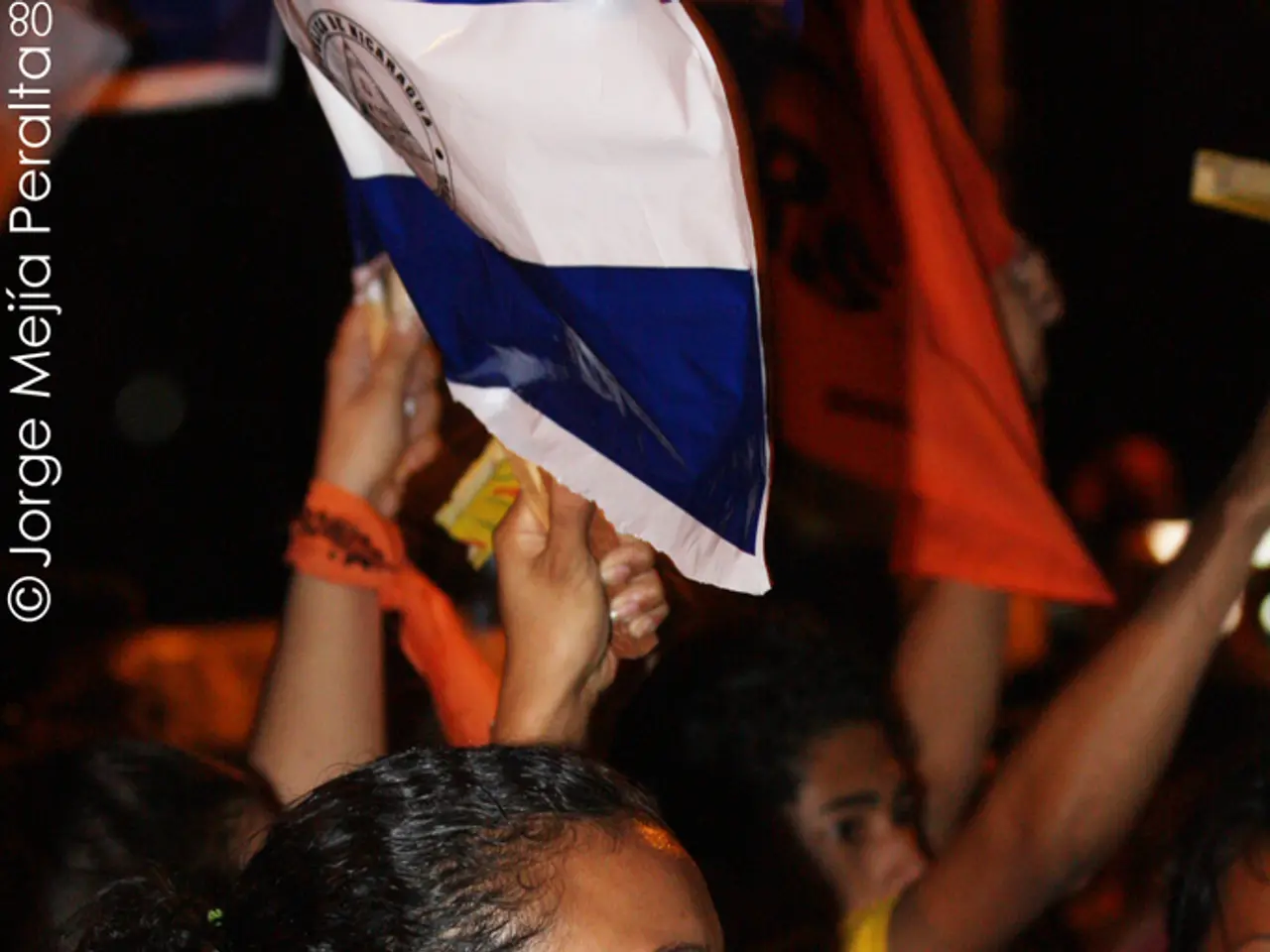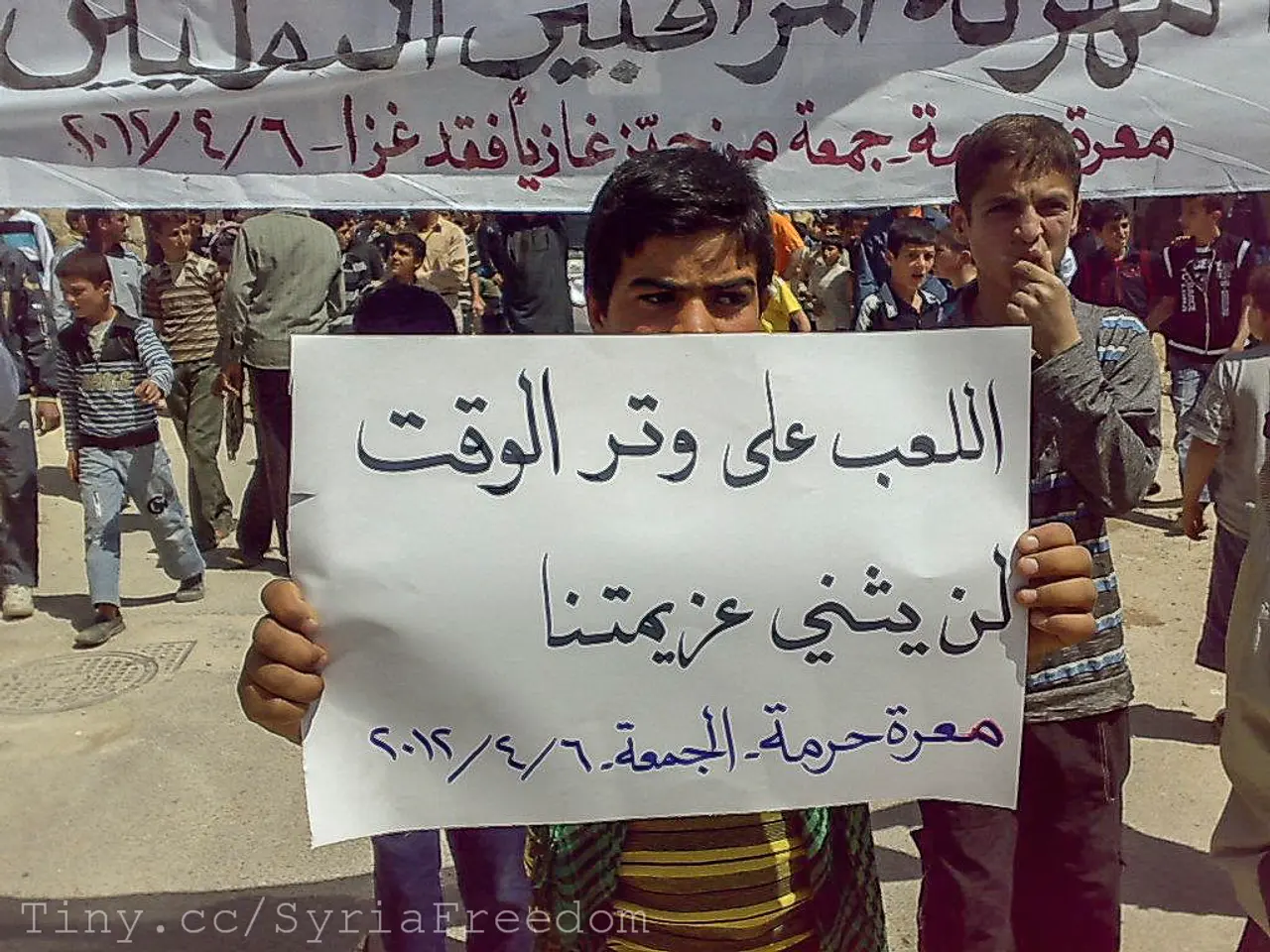Worldwide criticism increases towards Israel's military advancement in Gaza
In the ongoing conflict between Israel and Gaza, the situation remains dire as a ceasefire remains elusive. The families of the 50 remaining hostages, with 20 thought to be alive and struggling, are rallying to pressure the Israeli government, fearing for their loved ones' safety.
Mediators Egypt and Qatar are preparing a new ceasefire framework, which includes the release of all hostages in return for the war's end and the withdrawal of Israeli forces. This proposed framework closely follows a January 2025 agreement, which outlined three phases: a six-week ceasefire including the release of women and children hostages, Israeli withdrawal from densely populated Gaza areas, and humanitarian aid flow; immediate negotiations for a permanent end to the war with full Israeli withdrawal and the release of all hostages; and a multiyear Gaza reconstruction period with a new Palestinian government excluding Hamas.
However, implementing this framework faces challenges over hostages, border control, and governance. As of August 2025, Israel is preparing for a new offensive in Gaza City under a framework approved by the Israeli army chief, while negotiations for ceasefire resumption are reported but remain complex due to Israeli demands for Hamas disarmament and non-Hamas civilian governance, which Hamas resists.
The international community's response includes warnings from the UN of worsening humanitarian conditions. Over two million Palestinians in Gaza remain at extreme risk amid ongoing hostilities, and thousands of hostages remain endangered. Humanitarian aid is severely constrained, with food assistance having dropped by about 74%, from over a million meals daily in April to 259,000 meals as of early August 2025. Aid convoys face violence and looting, with over 1,500 fatalities and 10,000 injuries among Palestinians seeking aid near militarized checkpoints since May 2025.
In the past 24 hours, 11 Palestinians seeking aid were shot dead, and 11 adults died of malnutrition-related causes in Gaza. These tragic incidents have prompted Germany to announce that it won't authorize any exports of military equipment to Israel that could be used in Gaza until further notice.
The U.N. Security Council plans an emergency meeting regarding the situation in Gaza, and a joint statement by nine countries, including Germany, Britain, France, and Canada, strongly rejects Israel's decision for the large-scale military operation. International condemnation is growing against Israel's military takeover of Gaza City.
In a positive development, U.S. special envoy Steve Witkoff is expected to meet with Qatar's prime minister to discuss a new proposal to end the war. The hope is that this meeting will lead to a breakthrough in the ongoing negotiations and bring a much-needed end to the conflict.
In conclusion, while a ceasefire framework exists, it is fraught with political and security disputes; hostages remain a critical issue; and the international community continues to express grave concern about rising civilian casualties, aid access, and the worsening humanitarian crisis in Gaza. The international community must continue to pressure all parties involved to prioritize peace and the safety of civilians.
The proposed ceasefire framework, involving the release of all hostages and withdrawal of Israeli forces, faces challenges due to political and security disputes, making it vital for mediators to find a solution. The international community, concerned about the deteriorating health and safety of over two million Palestinians in Gaza, is escalating pressure on Israel to prioritize peace and ensure aid access.








